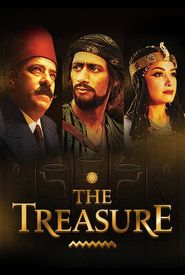Abdel Rehim Kamal's intellectual odyssey began with his distinguished graduation from the renowned High Institute of Cinema in the year 2000, a pivotal milestone that marked the inception of his illustrious academic trajectory.
As a scholar at the esteemed institution, he devoted himself to the pursuit of literary excellence, refining his artistry and generating an impressive array of captivating narratives that would leave a lasting impression on readers. Among his most notable achievements during this period was the creation of a remarkable anthology, "A Trip to Denmark and other Countries", which presented a thought-provoking collection of tales that would spark intellectual curiosity and emotional resonance in those fortunate enough to lay eyes on its pages.
Abdel Rehim Kamal, a multifaceted writer, expanded his creative horizons beyond the realm of short stories, delving into the world of novel writing. His literary endeavors culminated in the creation of the captivating and intellectually stimulating "Luxurious Torture". This novel, a testament to his remarkable storytelling prowess, masterfully wove together intricate characters and narratives that effortlessly ensnared readers, leaving them in awe of his remarkable ability to craft complex and thought-provoking tales.
Abdel Rehim Kamal's journey into novel writing began with the creation of "Luxurious Torture", a literary masterpiece that showcased his exceptional skill in crafting characters and narratives that captivated readers.
Abdel Rehim Kamal's formative years in Sohag, a city situated in the northern region of Upper Egypt, had a profound and lasting impact on the development of his literary style. This upbringing, deeply rooted in the cultural and socioeconomic fabric of his native city, significantly influenced the themes and motifs that he would later explore in his writing. As a result, many of his works are distinguished by a profound understanding of the complex social and economic dynamics that characterized his childhood and adolescence in Sohag. His writing often serves as a powerful reflection of the people, culture, and traditions that played a significant role in shaping his life and worldview.
























